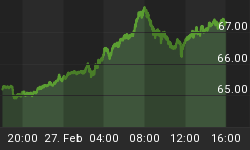Ben, if you and the other members of the FRB are thinking of the factors that I shall mention, then you are likely not to do QE3 any time soon. If not, then, on your own grounds of economic thought, I believe that you are making a mistake.
My general argument is that the risks of QE3 outweigh the prospective gains, on your grounds, not mine. (My preference is no central bank and free banking and/or privately produced money and credit, but I am laying that aside in this article.)
My specific arguments follow.
First, using your data, the unemployment rate is falling. It is a lagging indicator. This suggests that the economy is recovering. Other indicators suggest the same, including the stock market and the money supply, even though one can always find contra-indications.
It stands to reason that the economy is in recovery mode because it is over 3 years since the 2008 collapse and recession was evident even earlier than that. Since there have not been any serious shocks to the economy for awhile, it is naturally recovering.
The risk to the FED is that you will use up your ammunition when you do not need to. You need your ammunition for the next time that the economy sinks.
Second, if inflation ignites, then interest rates on debt will rise. The government deficit will rise sharply. The government will be in a lot of trouble.
You cannot take the risk of this happening because your only tool will be to support government bonds by purchases. The markets probably will not look upon this support as benignly as in the past.
But if you do QE3, you risk setting off inflation as well as enhanced expectations of inflation, and they will themselves cause inflation. You risk it because the economy is already recovering.
Third, money supply is rising very sharply, at 20 percent rates. This indicates recovery and it also indicates a higher inflation potential.
If QE3 is done at this time, the rate of increase of money aggregates will be so high that they may cause expectations of inflation to rise sharply higher. Bond yields will rise, and the government will face higher rates and financing stringency.
Fourth, QE3 risks setting off another speculative cycle as in the past. To halt that, you'd have to tighten. But that would raise borrowing rates for the government. This is a risk you want to avoid. A related consideration is simply that it's a reasonable time in the economic cycle to allow more market discipline so as not to ignite another speculative cycle.
Fifth, QE3 risks undermining the FED's credibility on inflation. The FED hasn't exited from its earlier QE programs. It's actually time overdue to build up FED credibility. QE3 now goes in the opposite direction and risks losing it.
Sixth, there is really no strong reason for QE3 at this time.
Seventh, QE3 is per se risky in the sense that there is no strong evidence that it will accomplish much of anything in the real economy.
Eighth, if you do QE3, you risk losing independence. If you are forced into the position of supporting government bonds, then fiscal dominance comes into play. At that point, you have lost your credibility on inflation. Restoring it will be very hard inasmuch as you'd have to tighten. The flak from the government would be enormous.
Ninth, if war starts with Iran, prices will rise across the board and bonds will fall. You will need ammunition at that time to support bonds.
So, overall, the gains from doing QE3 are uncertain and generally unneeded, such as they may be. QE3 sends all the wrong signals to the markets. It reduces your flexibility by quite a lot. It risks igniting inflation and raising inflation expectations.
My advice is simple. Don't do QE3.















